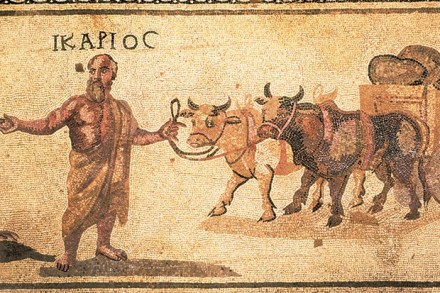Ancients on oldies: tips on ageing from the Romans are all Greek to Richard Ingrams
A few months ago I went to a lunch at Univ, my old college in Oxford, to celebrate the 95th birthday of my Ancient History tutor George Cawkwell. There were toasts and speeches, including one from George himself and my fellow student Robin (now Lord) Butler, who did a brilliant imitation of George getting all excited when describing the battle of Marathon and reverting, temporarily, to his native New Zealand accent. In the company of such men, not forgetting another fine speechmaker, Edward Enfield, also one of George’s pupils, I felt ill at ease. There they were, overflowing with classical allusions, and there was I, wondering how I could have





















